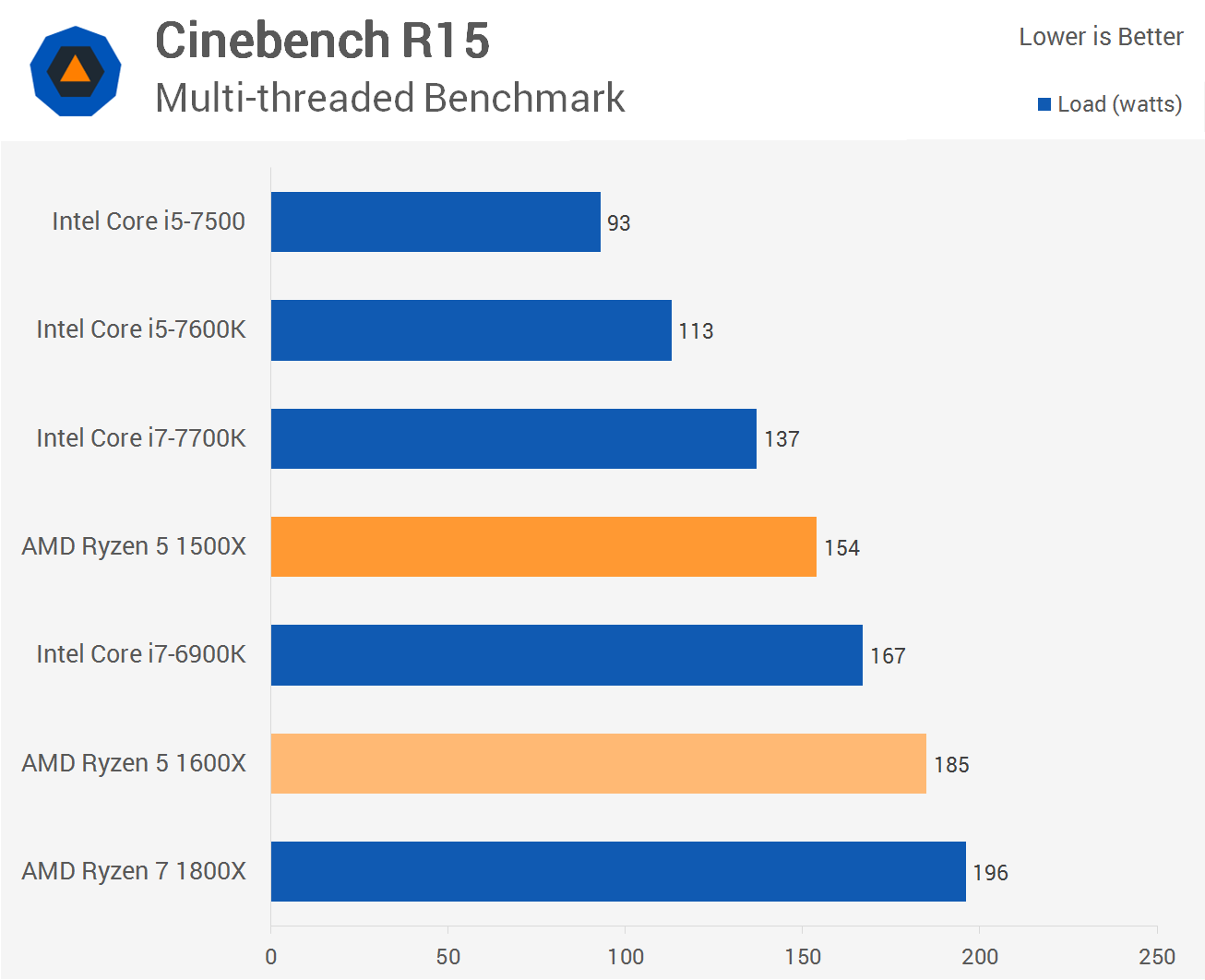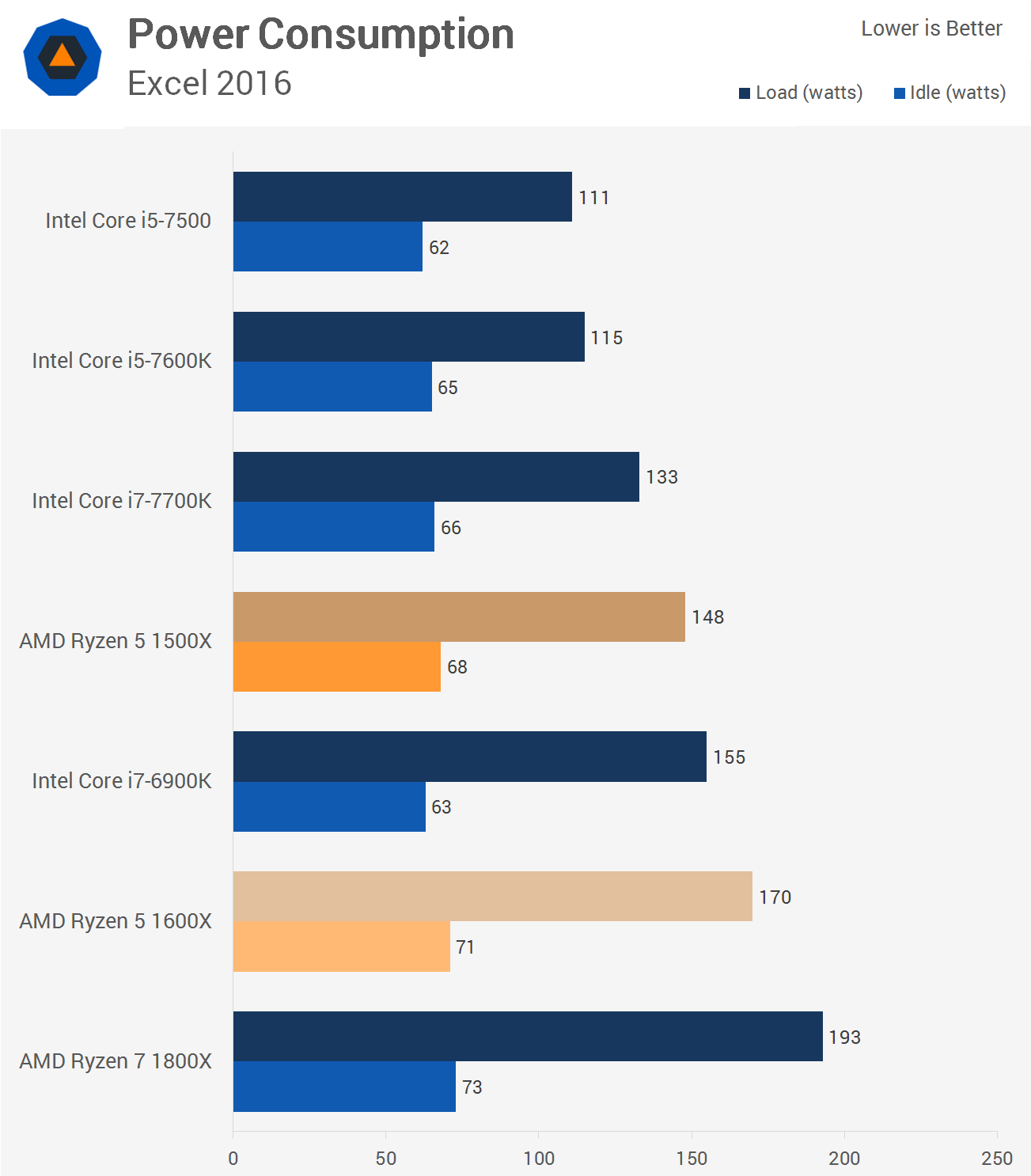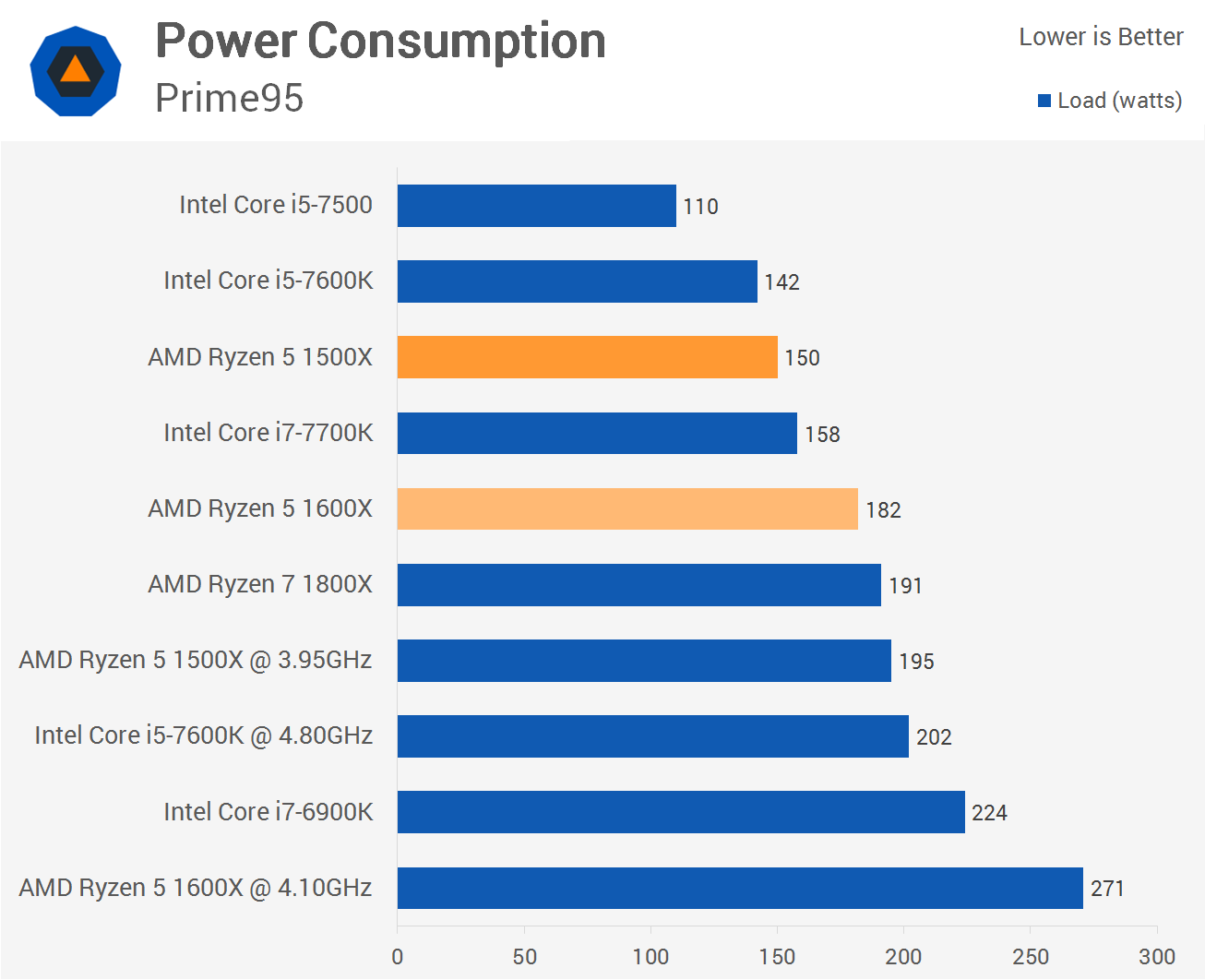Power Consumption

Looking at the power consumption figures when running the Cinebench R15 multi-threaded test I have to say the Ryzen CPUs don't look particularly fuel efficient. The 1600X pushed our total system consumption to 64% higher than that of the Core i5-7600K.
However, we need a bit more context. Keep in mind that the 1600X was almost 100% faster in this test, so increasing total system consumption by just 64% to deliver twice the performance is actually impressive.
The 1500X wasn't quite as remarkable as its configuration consumed 66% more power while it was only 45% faster. That's still not a bad result but the 1500X does look quite inefficient in this test compared to the 7700K.

When looking at the power consumption figures for our Excel test, it's interesting to note that all of the system configurations had roughly the same idle usage at around 60 - 70 watts.
Again, the power consumption figures on their own are a bit misleading. For instance, the 1600X can be seen pushing system consumption 34% higher than that of the 7600K configuration and that looks bad, yet it did complete the test 62% faster, actually making it the more efficient processor here.
The same is true for the 1500X, it consumed 33% more power than the 7500 while delivering 61% more performance.

As is often the case, power efficiency goes right out the window once you start overclocking and increasing voltages. If you care about efficiency then overclocking the Ryzen 5 processors might not be a desirable option. The performance gains were quite slim and yet we see the 1600X increase total system consumption by a staggering 49% – hard to believe but it's true. The 1500X increased consumption by a more reasonable 30% though at best we only saw about half that in performance gains.
By the way, the 7600K likewise burned 42% more power once overclocked despite only seeing performance gains of up to 20%.
